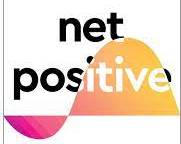BOOK REVIEW
 Santhosh Jayaram
Santhosh Jayaram
Let me start the review with a confession when I first chanced upon the book Net Positive by Paul Polman and Andrew Winston; I was intrigued but not enthused. Somehow, I was under the impression that the book would be talking about how to offset the negatives like plantation, sequestration, etc. And yet, I could have been more off-the-mark. As fate would have it, the book was presented to me as a token for conducting a session on sustainability. Once in hand, I started going through it, and the chapter “Why Mayo Beat Ketchup” got me hooked. The business narrative of how Unilever successfully fended off a hostile takeover from Kraft Heinz compelled me to read on. It was a story about how the sustainable business model gathered support from all quarters to tide over the takeover bid.
The book builds from that point on and has a fair dose of the Unilever Sustainable Living Plan (USLP). It is fascinating to know how Unilever implemented USLP, and the book also narrates the successes, dilemmas, and failures. I always admired Paul’s audacity in telling the investors that Unilever would not report quarterly earnings or provide guidance. The book reveals that he took this step just three weeks into the CEO role. Even after so many years and even when the discussion on sustainability/ESG is at its peak, how many leaders can dare to do that?

When you read sections, you understand that compassion is not a weakness but the ignition to do things differently. Even when the leader wants to do differently, the narration brings out systemic challenges. Several sections navigate the grey space and showcase the difficulties Unilever’s leadership went through. There are sections around topics that should be more covered in sustainability books, like taxes, corruption, compensation, lobbying, political donations, layoffs, and the discussion on how responsible corporates should look at these topics.
The eminence of the narrative is the quality of research that has happened in producing the book. It is not just about Unilever but peppered with a great doze of best practices from corporates worldwide. For every point of view presented in the book, there is a reference to someone who has done it or doing it. Over 500 end notes of the book are the attestation to this research.
The sections on how to drive sustainability in the supply chain are a real lesson for many who find it difficult. I am not saying that readers will find some easy solutions, as there are no easy ways, but the lesson is the experience of how to go about it. Even now, the audacity is evident when Unilever commits to ensuring a living wage to everyone who directly provides goods or services by 2030.
The “Three to Tango” section about the collaborative journey between businesses, NGOs and governments re-emphasized my viewpoints. The lack of trust between these 3 constituents to start with and how the trust gets built over a period of time is something many can relate to.
One thing that was strange to me is that while the book is co-authored by Paul, the book refers to him in the third person. But that does not take anything away, and the book showcases a real compelling appeal to the leaders on how sustainable business models can not just sustain but make that lasting impact. As I was ending the book, I remembered the song by Beyonce – I was here. If only every person in positions of authority could create Net-Positive and say…
…left this world a little better…
…leave something to remember, so they won’t forget…
…..I will leave my mark, so everyone will know I was here…








Recent Comments